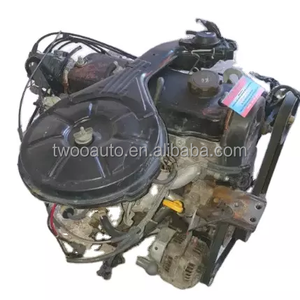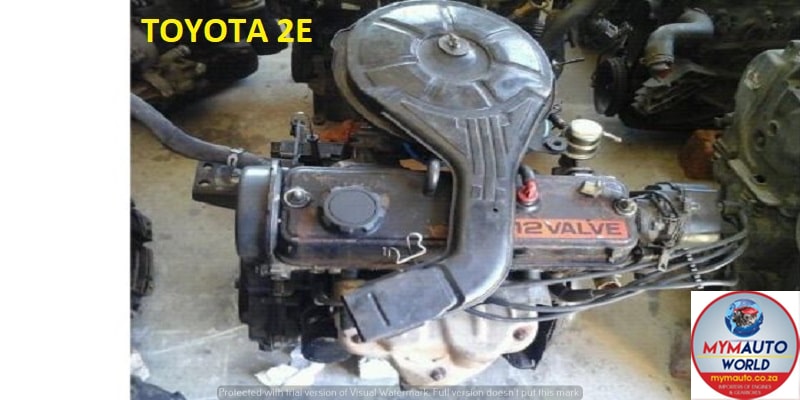Toyota Tazz: A Compact Car That Offers Big Value and Long-Term Durability
Toyota Tazz: A Compact Car That Offers Big Value and Long-Term Durability
Blog Article
Explore the most recent Trends in Engine Technology With Tazz
In the swiftly progressing landscape of vehicle modern technology, Tazz stands at the center, highlighting considerable improvements in engine systems that prioritize both technology and sustainability. tazz. From hybrid engines that enhance fuel performance to the introduction of hydrogen gas cells, the trends forming modern-day powertrains are not just enhancing efficiency yet also resolving essential ecological difficulties. As the sector continues to push limits, it is important to take into consideration how these growths will affect future transport services and the more comprehensive implications for international power consumption. What lies ahead in this critical transformation?
Hybrid Engine Innovations
Crossbreed engine technologies stand for a crucial change in auto modern technology, combining the advantages of internal burning engines with electrical propulsion systems. This assimilation not just boosts gas efficiency however also reduces discharges, meeting progressively rigid environmental laws. By utilizing both energy resources, hybrid engines can enhance efficiency, supplying power when required while saving fuel during much less requiring driving problems.
Current advancements in crossbreed innovation include improvements in battery performance and regenerative stopping systems. These developments enable higher energy healing during deceleration, which can be redirected to help in velocity or power accessory systems. In addition, makers are concentrating on lightweight materials and small layouts to make best use of the performance of hybrid powertrains.
The growth of plug-in crossbreeds has actually likewise increased the marketplace, enabling vehicle drivers to bill their vehicles utilizing typical electric outlets. This attribute often enables for significant all-electric range, more lowering reliance on conventional fuels. tazz. As the automobile industry continues to develop, hybrid engine technologies are expected to play a crucial duty in bridging the space in between standard cars and totally electrical designs, offering a transitional remedy that provides to diverse customer needs and choices
Advancements in Electric Powertrains
The vehicle landscape is quickly progressing, with electric powertrains becoming a leading pressure in sustainable transport. Breakthroughs in electric car (EV) technology are significantly boosting efficiency, effectiveness, and individual experience. Secret developments consist of renovations in battery chemistry, which have boosted energy density, minimized charging times, and expanded overall battery life.
Solid-state batteries, as an example, assure to transform the market by supplying higher security and performance compared to standard lithium-ion cells. Improvements in regenerative stopping systems are making it possible for lorries to recover power throughout slowdown, adding to overall effectiveness.
Along with battery modern technology, electric motor designs are ending up being a lot more advanced. Developments such as incorporated electric motors and advanced thermal administration systems are helping to enhance power delivery and minimize weight, eventually boosting automobile characteristics.

Collectively, these developments underscore the commitment to change towards cleaner, a lot more reliable transport services, positioning electrical powertrains at the center of auto innovation.
The Rise of Hydrogen Fuel Cells
Progressively, hydrogen fuel cells are getting traction as a sensible alternative to typical inner combustion engines and battery electric cars. This technology harnesses the chemical power kept in hydrogen, transforming it right into electrical energy via an electrochemical response with oxygen. The primary byproduct of this process is water, making hydrogen gas cells an eco-friendly alternative with no exhausts at the tailpipe.

Car manufacturers are progressively buying hydrogen gas cell modern technology, identifying its capacity for long-range applications and rapid refueling capabilities that rival standard fuels. In addition, industries such as my review here durable transport and public transit are especially fit for hydrogen gas cells, where battery electric services might drop short because of weight and variety limitations.
As research study and financial investment continue to broaden, hydrogen fuel cells are poised to play a significant duty in the future landscape of tidy transport and power remedies.
Enhancements in Internal Burning Engines
Innovations in internal burning engine (ICE) modern technology are changing conventional vehicles to meet modern ecological requirements and performance assumptions. Among one of the most substantial enhancements includes the integration of innovative fuel injection systems. These systems maximize the air-fuel mix, improving burning efficiency and resulting in minimized exhausts. Direct gas shot, for example, permits far better atomization of gas, bring about more complete burning and boosted power output.
Furthermore, turbocharging has acquired prominence, permitting smaller sized engines to deliver greater efficiency without the weight of larger engines - tazz. This technology not just improves performance however additionally adds to reduce fuel intake. Variable shutoff timing systems are likewise being improved, enabling engines to adapt to different driving problems for improved torque and responsiveness
Furthermore, making use of lightweight products in engine building and construction is coming to be typical, more boosting fuel effectiveness by minimizing total car weight. Engine control devices (ECUs) are progressively sophisticated, enabling real-time changes that enhance performance and emissions.
These improvements collectively represent an essential shift in ICE technology, aligning with global sustainability objectives while still giving the efficiency chauffeurs get out of their cars. As the sector progresses, these improvements continue to shape the future of standard automotive engineering.
Future Trends in Engine Efficiency
Significant developments in engine effectiveness are anticipated as suppliers concentrate on incorporating cutting-edge innovations to fulfill rigid ecological policies and customer needs. The change in the direction of electrification, hybrid systems, and different fuels is improving the auto landscape, driving technologies that boost fuel economic situation and decrease discharges.
One of the essential fads is the execution of sophisticated materials and manufacturing techniques. High-strength alloys and lightweight composites contribute to decreased lorry weight, therefore enhancing total effectiveness. Additionally, the fostering of turbocharging and variable shutoff timing technologies permits improved power result from smaller sized engines, even more boosting gas economic climate.

Verdict
Advancements in hybrid engine systems, electrical powertrains, and hydrogen fuel cells show a commitment to lowering discharges while boosting performance. Enhancements in internal burning useful site engines and a focus on lightweight products contribute to general engine performance.
From hybrid engines that maximize fuel performance to the emergence of hydrogen gas cells, the trends shaping modern-day powertrains are not just enhancing efficiency however additionally addressing vital ecological challenges.Hybrid engine technologies stand for a pivotal shift in automobile technology, combining the benefits of interior combustion engines with see page electric propulsion systems.In addition, turbocharging has actually gained prominence, enabling smaller engines to deliver greater efficiency without the weight of bigger engines. In addition, the fostering of turbocharging and variable shutoff timing modern technologies permits for enhanced power outcome from smaller engines, additionally improving fuel economic climate.
Improvements in internal combustion engines and an emphasis on lightweight materials contribute to overall engine effectiveness.
Report this page